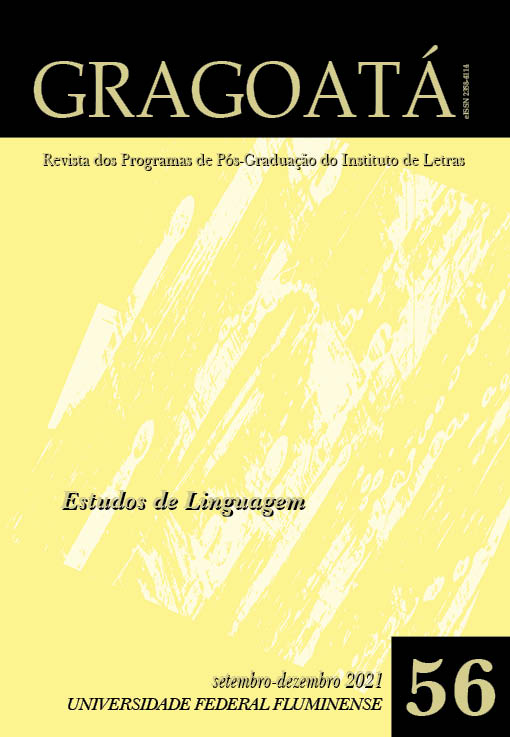De-universalizing the decolonial: between parentheses and falling skies
DOI :
https://doi.org/10.22409/gragoata.v26i56.51599Mots-clés :
Decoloniality, De-universalization, Think communication otherwiseRésumé
Departing from the premise that decoloniality is growing in popularity within contemporary Brazilian Applied Linguistics studies, this paper claims in favor of a more performative decolonial praxis so as to prevent decoloniality from universality. In doing so, the text begins with some theorizations on decolonial thought with an emphasis on the triad fundamental in any decolonial exercise, that is to Identify-Interrogate-Interrupt coloniality. The paper, then, claims in favor of thinking communication otherwise which, along with the notions of bringing back the body and marking the unmarked, constitute the necessary decolonial strategies if one wishes to interrupt coloniality. A critical examination of The falling Sky: words of a Yanomami shaman, co-authored by Kopenawa and Albert (2013), is brought to the fore as illustrative of a decolonial pedagogy which attempts to help language teacher educators and researchers to become attentive to socially-just-oriented educational agendas that claim to be culturally-sensitive whereas, in fact, they may be serving the purposes of a still prevailing colonial project.
Téléchargements
Téléchargements
Publiée
Numéro
Rubrique
Licence
AUTORIZAÇÃO
Autores que publicam em Gragoatá concordam com os seguintes termos:
Os autores mantêm os direitos e cedem à revista o direito à primeira publicação, simultaneamente submetido a uma licença Creative Commons Atribuição 4.0 Internacional (CC BY 4.0), que permite o compartilhamento por terceiros com a devida menção ao autor e à primeira publicação pela Gragoatá.
Os autores podem entrar em acordos contratuais adicionais e separados para a distribuição não exclusiva da versão publicada da obra (por exemplo, postá-la em um repositório institucional ou publicá-la em um livro), com o reconhecimento de sua publicação inicial na Gragoatá.
A Gragoatá utiliza uma Licença Creative Commons - Atribuição CC BY 4.0 Internacional.











